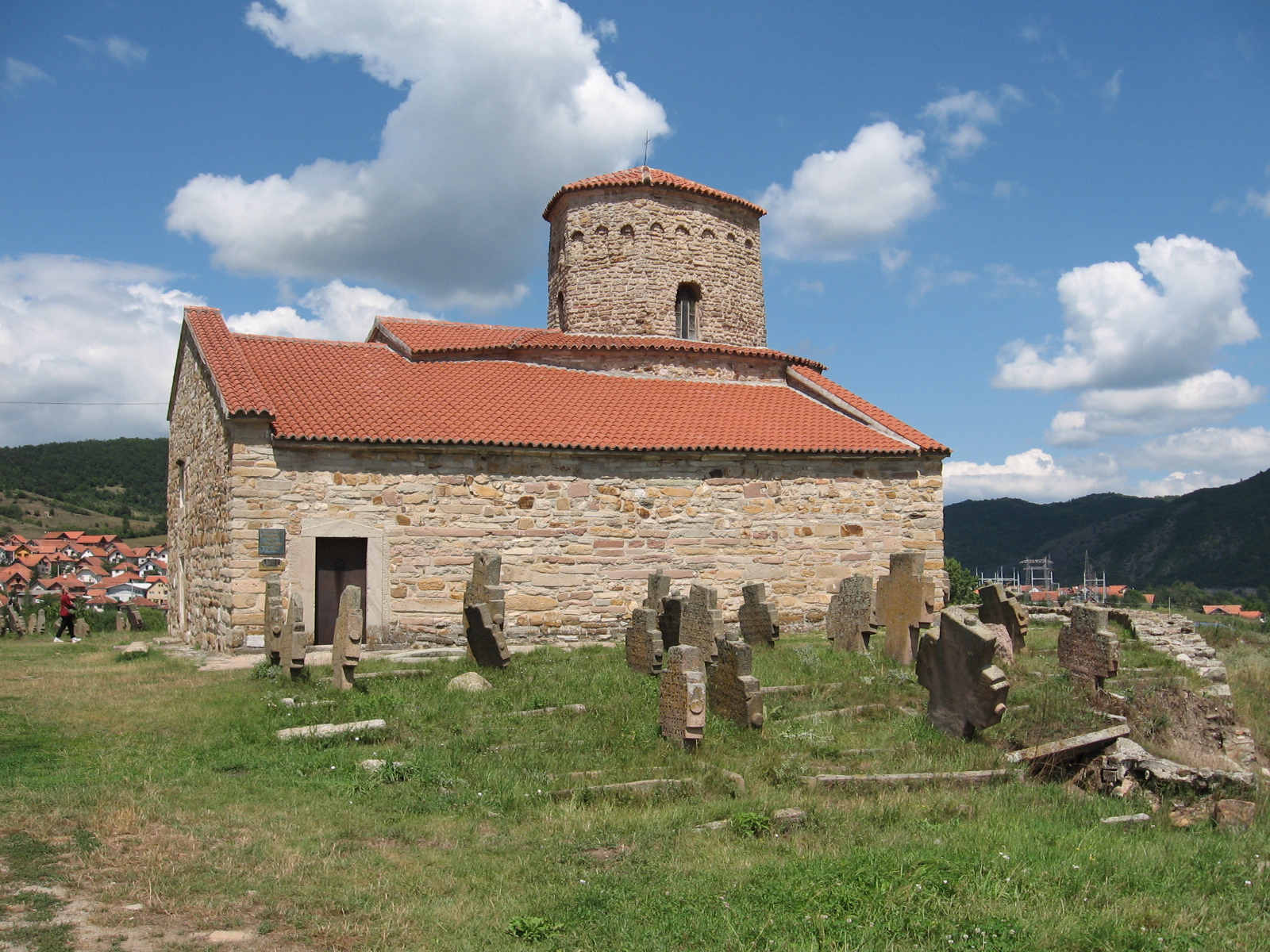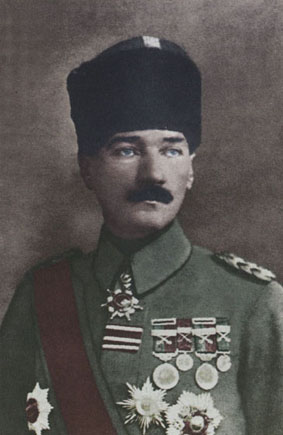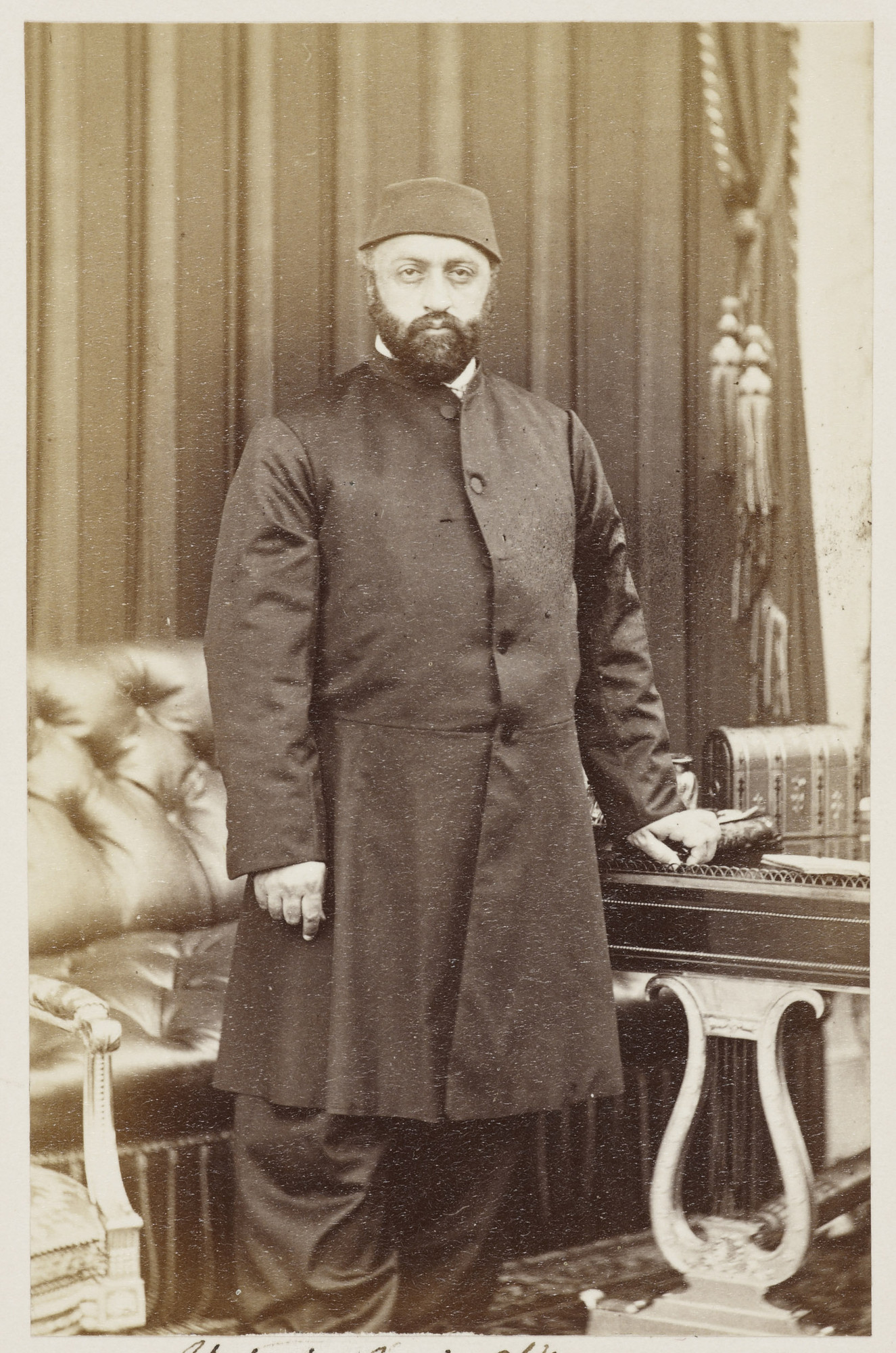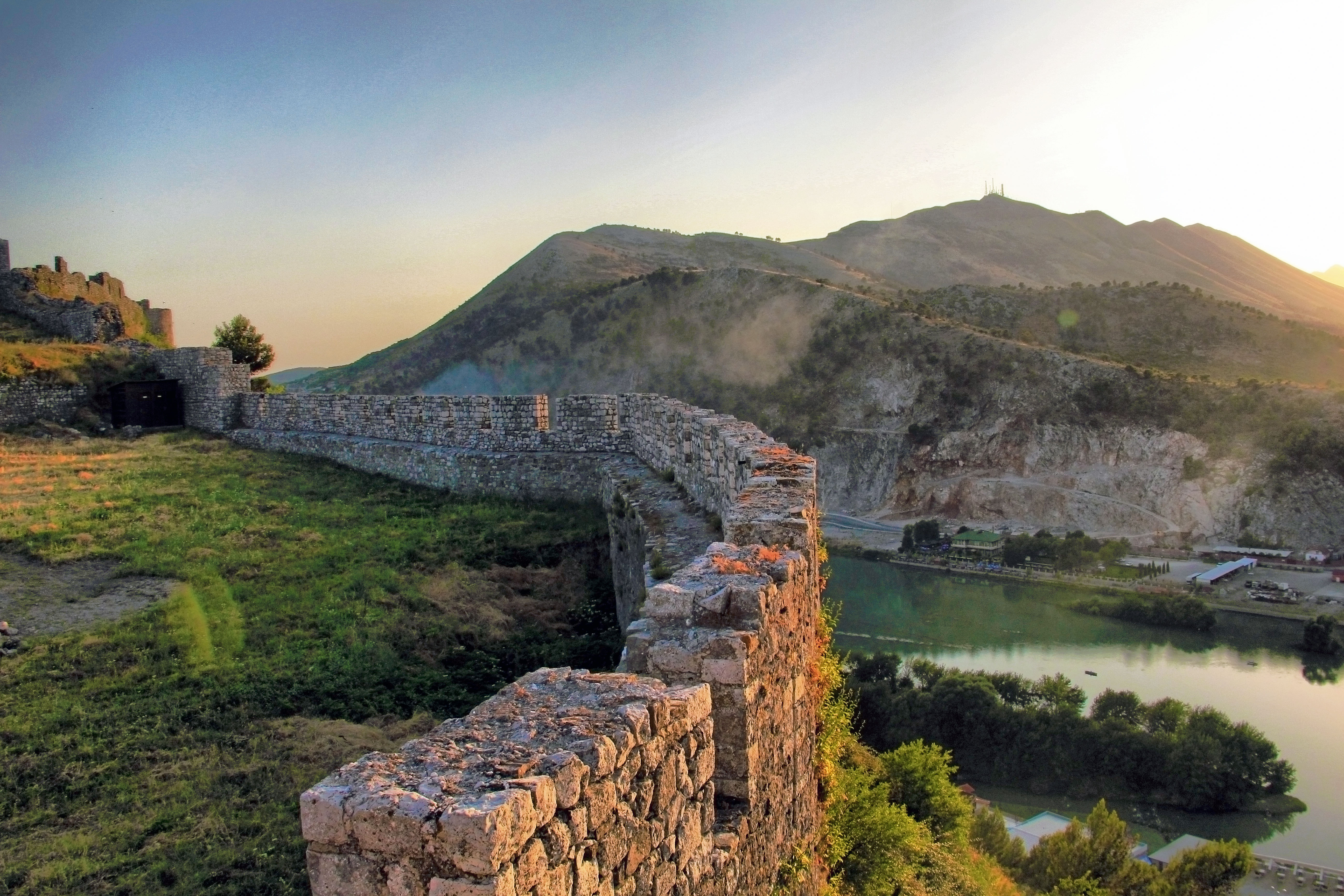|
Süleyman Hüsnü Pasha
Süleyman Hüsnü Pasha (; 1838–1892) was an Ottoman Turkish field marshal, who participated in the Russo-Turkish War of 1877–78. Biography Born in Istanbul, his father was a candy merchant. He was graduated from the military school in 1859. Served as an officer in Yeni Pazar, Herzegovina and Shkodër. He became a major in 1867 then served in Crete. Due to his success during the Crete Rebellion he was promoted two times in succession in 1872 and 1873 to become a mirliva. He then served as the commander of the military schools. He played an important role in displacement of Sultan Abdulaziz and Murad V's accession to the throne. On May 30, 1876, and was made general of division by Murad V. He was the chief commander of Ottoman military operations in the Balkan Peninsula during the Russo-Turkish War (1877–78). He was considered as the reason of provocation against the Ottoman government. After that war he was sent into military tribunal and then to exile to Baghdad ... [...More Info...] [...Related Items...] OR: [Wikipedia] [Google] [Baidu] |
Pasha
Pasha (; ; ) was a high rank in the Ottoman Empire, Ottoman political and military system, typically granted to governors, generals, dignitary, dignitaries, and others. ''Pasha'' was also one of the highest titles in the 20th-century Kingdom of Egypt and it was also used in Morocco in the 20th century, where it denoted a regional official or governor of a district. Etymology The English word ''pasha'' comes from Turkish language, Turkish ('; also ()). The Oxford English Dictionary attributes the origin of the English borrowing to the mid-17th century. The etymology of the Turkish word itself has been a matter of debate. Contrary to titles like emir (''amīr'') and bey (sir), which were established in usage much earlier, the title ''pasha'' came into Ottoman Empire, Ottoman usage right after the reign of Osman I (d. 1324), though it had been used before the Ottomans by some Anatolian beyliks, Anatolian Turkish rulers of the same era. Old Turkish had no fixed distinction betwe ... [...More Info...] [...Related Items...] OR: [Wikipedia] [Google] [Baidu] |
Yeni Pazar
Novi Pazar ( sr-cyr, Нови Пазар) is a city located in the Raška District of southwestern Serbia. As of the 2022 census, the urban area has 71,462 inhabitants, while the city administrative area has 106,720 inhabitants. The city is the cultural center of the Bosniaks in Serbia and of Sandžak. A multicultural area of Muslims and Orthodox Christians, many monuments of both religions, like the Altun-Alem Mosque and the Church of the Holy Apostles Peter and Paul, are located in the region which has a total of 30 protected monuments of culture. Name During the 14th century under the old Serbian fortress of Stari Ras, an important market-place named ''Trgovište'' started to develop. By the middle of the 15th century, in the time of the final Ottoman Empire conquest of Old Serbia, another market-place was developing some 11 km to the east. The older place became known as ''Staro Trgovište'' (Old Trgovište, ) and the younger as ''Novo Trgovište'' (New Trgovište, ). T ... [...More Info...] [...Related Items...] OR: [Wikipedia] [Google] [Baidu] |
Ottoman Military Personnel Of The Russo-Turkish War (1877–1878)
Ottoman may refer to: * Osman I, historically known in English as "Ottoman I", founder of the Ottoman Empire * Osman II, historically known in English as "Ottoman II" * Ottoman Empire 1299–1922 ** Ottoman dynasty, ruling family of the Ottoman Empire *** Osmanoğlu family, modern members of the family * Ottoman Caliphate 1517–1924 * Ottoman Turks, a Turkic ethnic group * Ottoman architecture * Ottoman bed, a type of storage bed * Ottoman (furniture), padded stool or footstool * Ottoman (textile), fabric with a pronounced ribbed or corded effect, often made of silk or a mixture See also * Ottoman Turkish (other) * Osman (other) * Usman (other) * Uthman (name), the male Arabic given name from which the name and word Ottoman is derived from * Otto Mann, a character in ''The Simpsons'' {{disambiguation ... [...More Info...] [...Related Items...] OR: [Wikipedia] [Google] [Baidu] |
Field Marshals Of The Ottoman Empire
Field may refer to: Expanses of open ground * Field (agriculture), an area of land used for agricultural purposes * Airfield, an aerodrome that lacks the infrastructure of an airport * Battlefield * Lawn, an area of mowed grass * Meadow, a grassland that is either natural or allowed to grow unmowed and ungrazed * Playing field, used for sports or games Arts and media * In decorative art, the main area of a decorated zone, often contained within a border, often the background for motifs ** Field (heraldry), the background of a shield ** In flag terminology, the background of a flag * ''FIELD'' (magazine), a literary magazine published by Oberlin College in Oberlin, Ohio * ''Field'' (sculpture), by Anthony Gormley Organizations * Field department, the division of a political campaign tasked with organizing local volunteers and directly contacting voters * Field Enterprises, a defunct private holding company ** Field Communications, a division of Field Enterprises * Field Museu ... [...More Info...] [...Related Items...] OR: [Wikipedia] [Google] [Baidu] |
Pashas
Pasha (; ; ) was a high rank in the Ottoman political and military system, typically granted to governors, generals, dignitaries, and others. ''Pasha'' was also one of the highest titles in the 20th-century Kingdom of Egypt and it was also used in Morocco in the 20th century, where it denoted a regional official or governor of a district. Etymology The English word ''pasha'' comes from Turkish ('; also ()). The Oxford English Dictionary attributes the origin of the English borrowing to the mid-17th century. The etymology of the Turkish word itself has been a matter of debate. Contrary to titles like emir (''amīr'') and bey (sir), which were established in usage much earlier, the title ''pasha'' came into Ottoman usage right after the reign of Osman I (d. 1324), though it had been used before the Ottomans by some Anatolian Turkish rulers of the same era. Old Turkish had no fixed distinction between /b/ and /p/, and the word was spelled still in the 15th century. Accor ... [...More Info...] [...Related Items...] OR: [Wikipedia] [Google] [Baidu] |
1892 Deaths
In Samoa, this was the only leap year spanned to 367 days as July 4 repeated. This means that the International Date Line was drawn from the east of the country to go west. Events January * January 1 – Ellis Island begins processing Immigration to the United States, immigrants to the United States. February * February 27 – Rudolf Diesel applies for a patent, on his compression ignition engine (the Diesel engine). * February 29 – St. Petersburg, Florida is incorporated as a town. March * March 1 – Theodoros Deligiannis ends his term as Prime Minister of Greece and Konstantinos Konstantopoulos takes office. * March 6–March 8, 8 – "Exclusive Agreement": Rulers of the Trucial States (Abu Dhabi, Dubai, Sharjah, Ajman, Ras al-Khaimah and Umm al-Quwain) sign an agreement, by which they become ''de facto'' British protectorates. * March 11 – The first basketball game is played in public, between students and faculty at the Springfield YMCA before 200 spectators. The ... [...More Info...] [...Related Items...] OR: [Wikipedia] [Google] [Baidu] |
1838 Births
Events January–March * January 10 – A fire destroys Lloyd's Coffee House and the Royal Exchange, London, Royal Exchange in London. * January 11 – At Morristown, New Jersey, Samuel Morse, Alfred Vail and Leonard Gale give the first public demonstration of Morse's new invention, the telegraph. * January 21 – The first known report about the Lowest temperature recorded on Earth, lowest temperature on Earth is made, indicating in Yakutsk. * January 23 – A 1838 Vrancea earthquake, 7.5 earthquake strikes the Romanian district of Vrancea County, Vrancea causing damage in Moldavia and Wallachia, killing 73 people. * February 6 – Boer explorer Piet Retief and 60 of his men are massacred by King Dingane kaSenzangakhona of the Zulu people, after Retief accepts an invitation to celebrate the signing of a treaty, and his men willingly disarm as a show of good faith. * February 17 – Weenen massacre: Zulu impis massacre about 532 Voortrekkers, Khoikhoi and Sotho people, ... [...More Info...] [...Related Items...] OR: [Wikipedia] [Google] [Baidu] |
Balkan Peninsula
The Balkans ( , ), corresponding partially with the Balkan Peninsula, is a geographical area in southeastern Europe with various geographical and historical definitions. The region takes its name from the Balkan Mountains that stretch throughout the whole of Bulgaria. The Balkan Peninsula is bordered by the Adriatic Sea in the northwest, the Ionian Sea in the southwest, the Aegean Sea in the south, the Turkish straits in the east, and the Black Sea in the northeast. The northern border of the peninsula is variously defined. The highest point of the Balkans is Musala, , in the Rila mountain range, Bulgaria. The concept of the Balkan Peninsula was created by the German geographer August Zeune in 1808, who mistakenly considered the Balkan Mountains the dominant mountain system of southeastern Europe spanning from the Adriatic Sea to the Black Sea. In the 19th century the term ''Balkan Peninsula'' was a synonym for Rumelia, the parts of Europe that were provinces of the Ottoman E ... [...More Info...] [...Related Items...] OR: [Wikipedia] [Google] [Baidu] |
Murad V
Murad V (; ; 21 September 1840 – 29 August 1904) was the sultan of the Ottoman Empire from 30 May to 31 August 1876. The son of Abdulmejid I, he supported the conversion of the government to a constitutional monarchy. His uncle Abdulaziz had succeeded Abdulmejid to the throne and had attempted to name his own son as heir to the throne, which spurred Murad to participate in Abdulaziz's overthrow. But his own frail physical and mental health made his reign unstable, and Murad V was deposed in favor of his half-brother Abdul Hamid II after only 93 days. Life Early life Murad V was born as Şehzade Mehmed Murad on 21 September 1840 in the Çırağan Palace in Constantinople. His father was Sultan Abdulmejid I, son of Sultan Mahmud II and Bezmiâlem Sultan. His mother was Şevkefza Sultan, an ethnic Georgian. In September 1847, aged seven, he was ceremoniously circumcised together with his younger half-brother, Şehzade Abdul Hamid. Murad was educated in the pa ... [...More Info...] [...Related Items...] OR: [Wikipedia] [Google] [Baidu] |
Abdulaziz
Abdulaziz (; ; 8 February 18304 June 1876) was the sultan of the Ottoman Empire from 25 June 1861 to 30 May 1876, when he was overthrown in a government coup. He was a son of Sultan Mahmud II and succeeded his brother Abdulmejid I in 1861. Abdulaziz's reign began during the Ottoman Empire's resurgence following the Crimean War and two decades of the Tanzimat reforms, though it was still reliant on European capital. The decade after his accession was dominated by the duo of Fuad Pasha and Aali Pasha, who accelerated reorganization of the Empire. The Vilayet Law was promulgated, Western codes were applied to more aspects of Ottoman law, and the millets were restructured. The issue of Tanzimat dualism continued to plague the empire, however. He was the first Ottoman sultan who traveled to Western Europe in a diplomatic capacity, visiting a number of important European capitals including Paris, London, and Vienna in the summer of 1867. With Fuad and Aali dead by 1871, Abdul Az ... [...More Info...] [...Related Items...] OR: [Wikipedia] [Google] [Baidu] |
Mirliva
''Mirliva'' or ''Mîr-i livâ'' was a military rank of the Ottoman Army and Navy. It corresponds to brigadier general ( modern Turkish: ''Tuğgeneral'') and division general ( modern Turkish: ''Tümgeneral'') in the modern Turkish Army. ''Mirliva'' is a compound word composed of '' Mir'' (commander) and ''Liva'' (or ''Liwa'', " brigade" in Arabic). The rank was junior to the '' Ferik'' ( Major General) and superior to the rank '' Miralay'' (Colonel Colonel ( ; abbreviated as Col., Col, or COL) is a senior military Officer (armed forces), officer rank used in many countries. It is also used in some police forces and paramilitary organizations. In the 17th, 18th, and 19th centuries, a colon ...) in the Ottoman Army and the pre-1935 Turkish Army. ''Mirliva'' was the most junior general rank with the title '' Pasha''. The collar mark (later shoulder mark) and cap (until 1933) of a ''Mirliva'' had three stripes and one star during the early years of the Turkish Republic. ... [...More Info...] [...Related Items...] OR: [Wikipedia] [Google] [Baidu] |
Shkodër
Shkodër ( , ; sq-definite, Shkodra; historically known as Scodra or Scutari) is the List of cities and towns in Albania, fifth-most-populous city of Albania and the seat of Shkodër County and Shkodër Municipality. Shkodër has been List of oldest continuously inhabited cities, continuously inhabited since the Early Bronze Age ( 2250–2000 BC), and has roughly 2,200 years of recorded history. The city sprawls across the Plain of Mbishkodra between the southern part of Lake Skadar, Lake Shkodër and the foothills of the Albanian Alps on the banks of the Buna (Adriatic Sea), Buna, Drin (river), Drin and Kir (river), Kir rivers. Due to its proximity to the Adriatic Sea, Shkodër is affected by a seasonal Mediterranean climate with Continental climate, continental influences. An urban settlement called ''Skodra'' was founded by the Illyrians, Illyrian tribe of Labeatae in the 4th century BCE. It became the capital of the Illyrian kingdom under the Ardiaei and Labeatae and was one ... [...More Info...] [...Related Items...] OR: [Wikipedia] [Google] [Baidu] |








